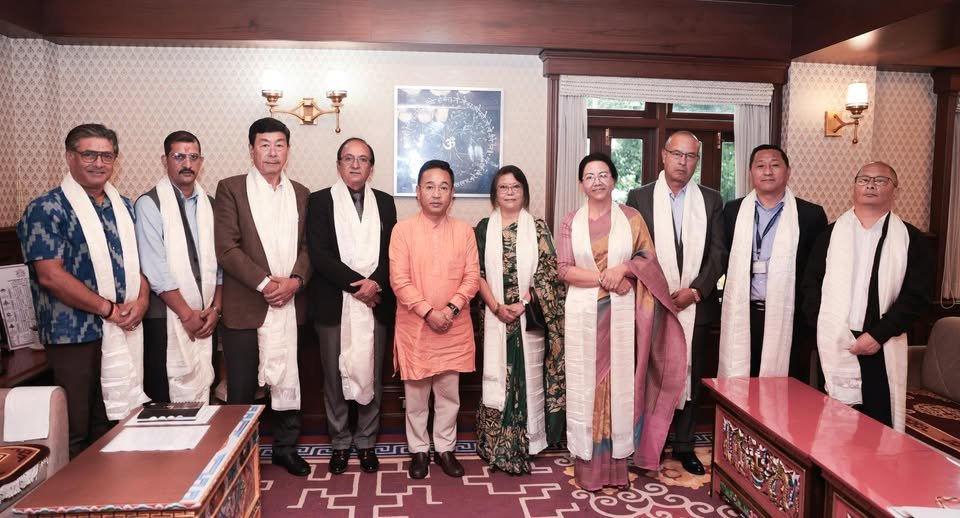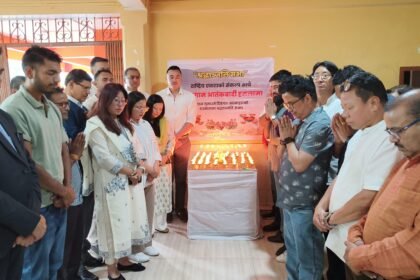State Government Establishes ‘Institute for Transforming Sikkim’ to Drive Holistic Development
GANGTOK: In a pivotal move aimed at fast-tracking Sikkim’s development, the State Government has formally established the Institute for Transforming Sikkim (ITS) as a premier multidisciplinary think tank. The ITS will play a crucial role in guiding the State’s development strategy and reforming the planning process to align with contemporary needs and future goals.
The first meeting of the Institute was held today at Mintogang under the chairmanship of Chief Minister Mr Prem Singh Tamang. The meeting was attended by ITS Vice Chairman Mr Chandra Prakash Sharma, including all six members – Madam Ganga Devi Pradhan, Madam Namrata Thapa, Dr. Sangay Dorjee Bhutia, Dr. Bharat Chandra Basistha, Mr James Saring Lepcha, Dr. Neeraj Adhakari—and the Member Secretary, Mr Rinzing Chewang Bhutia, who is also the Secretary of the Planning and Development Department.
During the meeting, the Chief Minister extended a warm welcome to all members and held detailed deliberations on key developmental challenges and opportunities facing the State. Following the discussions, the Chief Minister outlined the key directives and responsibilities for ITS.
Key Mandates of the Institute for Transforming Sikkim:
• Function as a multi-disciplinary think tank, responsible for guiding and reforming the development planning process in Sikkim.
• Identify growth drivers and enablers across various sectors, including agriculture, education, health, infrastructure, green development, energy, climate change, employment, resource mobilization, and disaster management.
• Promote evidence-based policymaking by strengthening monitoring, evaluation, and data analysis mechanisms across all ongoing Centrally Sponsored, Externally Aided, and State Earmarked schemes.
• Conduct field visits to assess and monitor the implementation and progress of key projects, particularly those lagging in physical and financial execution.
• Encourage use of green technologies and instruments in critical sectors such as agriculture, transport, education, health, tourism, industries, waste management, and governance.
• Cultivate a knowledge-sharing platform within the State to adopt and adapt best practices in governance and policy from across the country.
• Assist the State Government in budget preparation and negotiations with central ministries and agencies by providing robust data and policy inputs.
• Establish Constituency Development Committees (CDC) in all 31 Assembly constituencies to serve as grassroots-level counterparts to the ITS.
• Prepare and recommend Constituency Development Plans using participatory methods like RPA and PRA, based on localized needs and available resources.
• Organize consultation meetings with departments, including participation from Heads of Departments, for coordinated planning and implementation.
• Undertake additional responsibilities aimed at promoting the socio-economic development of Sikkim, including training and capacity building for youth and professionals to create a pool of skilled human resources for various sectors.
“The Institute is expected to function as a transformative force for the State, bringing strategic vision, technical expertise, and community participation together for holistic and sustainable development”, shared the Chief Minister.
- IPR Report





